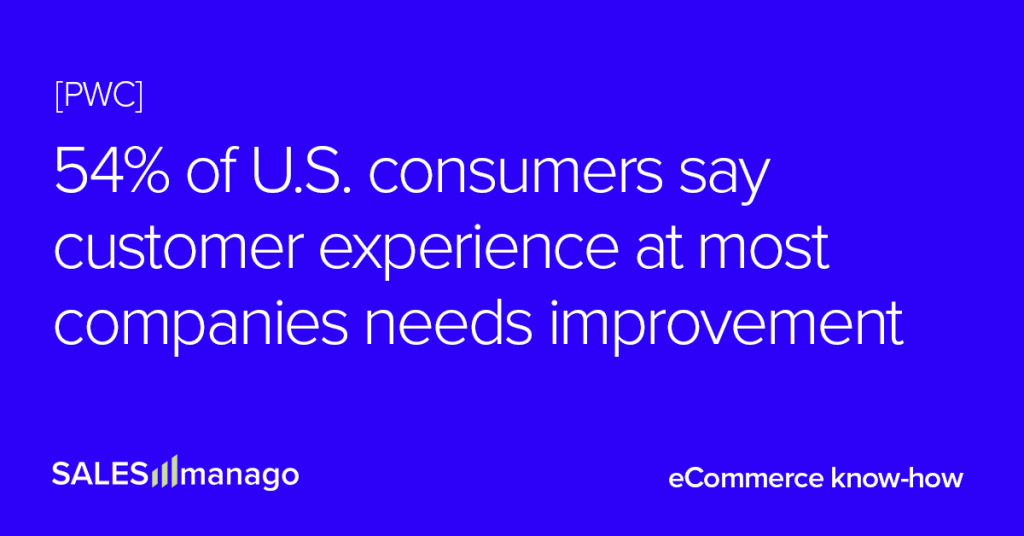
That often misunderstood and downplayed role of Chief Customer Officer can help you make a real difference in your business. Learn exactly what the CCO role is and how to leverage its potential.
What is a CCO?
We’ve become accustomed to positions such as CEO, CMO, or CTO. However, in recent years, we often come across a completely new acronym that makes most of us scratch our heads in an expression of helpless wonder. I’m talking about CCO.
CCO stands for Chief Customer Officer. Just 20 years ago, this position was practically non-existent, and today it is a group of over 6,000 people on LinkedIn. Its sudden appearance has a lot to do with the evolution of business. As the value of customer experience has rapidly increased, it has become the biggest asset for companies, replacing things like product quality.
According to a Deloitte study, customer-focused companies are 60% more lucrative than those that do not prioritize their customers and the experiences they may face during the buying process. That’s why introducing CCO has become a burning issue for many companies providing all kinds of B2C services.
The job of Chief Customer Officers
One of the biggest challenges for both customers and executives is to properly define what CCOs are and what they are doing. Here we are, rushing to explain! Now, even when asked about the Chief Customer Officer, half-asleep in the middle of the night, you will give a flawless answer!
The main challenge CCOs are facing is to improve the interaction between the company and the customer. As part of the board, we can see them as, to some extent, key influencers. A Chief Customer Officer often referred to as a Chief Client Officer is primarily responsible for designing, building, and implementing a remarkable customer strategy for business.
What it means, that from the moment the company hires a CCO, this person has real-time influence over different company departments related to customers. It can be either Customer Success or Service, Customer Marketing, and even Technical Support, as they do contact the clients directly.
In terms of responsibility for specific workflows, the CCO bears the burden of several key processes such as:
- increasing Customer Lifetime Value – increasing the total amount of money the customer is expected to spend on the brand,
- ensuring Customer Retention – establishing a set of actions to increase the number of repeat customers,
- maintaining Customer Loyalty – assuring that the customer will remain loyal to the brand,
- increasing the likelihood of recommendation – the likelihood that the customer will recommend the company to others,
- keeping an eye on the renewal rate – % of the revenue that has been renewed in a given period.
Coming down to the merit of what CCOs do, it’s a combination of many tasks swirling around customer’s needs, such as:
- managing teams that are customer-facing,
- overseeing marketing activities for clients,
- working with customer service representatives,
- discussing new releases with developers,
- supporting customer service and customer success management.
5 Reasons to hire CCO
54% of U.S. consumers say customer experience at most companies needs improvement. For this exact reason, you have to hire a CCO. Here’s what a Chief Customer Officer can do for your company:
1. Enable cross-functional cooperation to break down silos
In most companies, departments are siloed and do not work together. This often leads to an excessive focus on their own issues, forgetting what is most important: the customer.
The CCO’s job is to make sure that all departments are working together for a common cause, putting the customer at the center of everything. This way, marketing, sales, customer service, and even developers have a unified vision of a customer-centric approach.
2. Improve relationships with customers
You might think of the Chief Customer Officer as the representative and voice of customers. In our work culture, when everyone is weighed down by their tasks, it’s easy to lose touch with the customer. The CCO’s job is to advise customer success teams on how to maintain a strong, valuable relationship.
3. Manage loyalty programs and feedback
CCOs are the people responsible for listening to feedback and increasing customer loyalty. Since customer feedback is what should drive a company’s actions, a person who listens and learns from it is sorely needed.
Without well-addressed feedback, customer-focused activities would simply go in circles without a clearly defined path. The COO can identify the right feedback tools to close the information loop.
4. Enhance the process configuration
Once the feedback is collected, CCOs can focus on interpreting this data to get to the true customer point of view and develop new processes that incorporate the data.
New processes will help track and map customer expectations, ensuring alignment with customer needs, and redesigning existing, broken processes.
5. Invaluable Help in communicating with employees
Satisfied customers are the glue that holds together every company that strives to be the best in the market. But we must not forget that the happiness of employees is equally important. An awesome Chief Customer Officer ensures that both customers and employees are treated equally.
The COO’s job in this regard is to make sure they are both up to date on changing company policies, implementation of new procedures, or data ethics, prior to implementation.
And there you go – 5 reasons why you should hire a CCO for your business. I hope you’ve come to understand their role in both – growing and established businesses because they can make a real difference in how you handle the communication, transaction, and loyalty processes with your customers.




 Follow
Follow

![[New Feature] Shine the light on your hidden visitors with Spotlight](https://blog.salesmanago.com/wp-content/uploads/2024/04/1-9.png)


![[New Feature] Unlock Deep Behavioral Personalization with Product Collections](https://blog.salesmanago.com/wp-content/uploads/2024/03/1-3.png)



![[New Feature] Shine the light on your hidden visitors with Spotlight](https://blog.salesmanago.com/wp-content/uploads/2024/04/1-9-1024x536.png)








